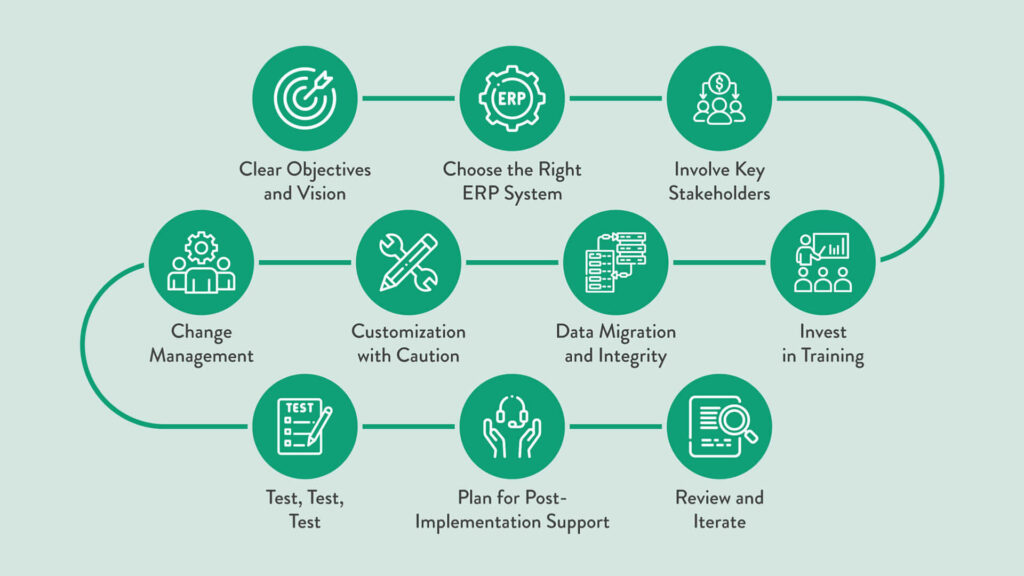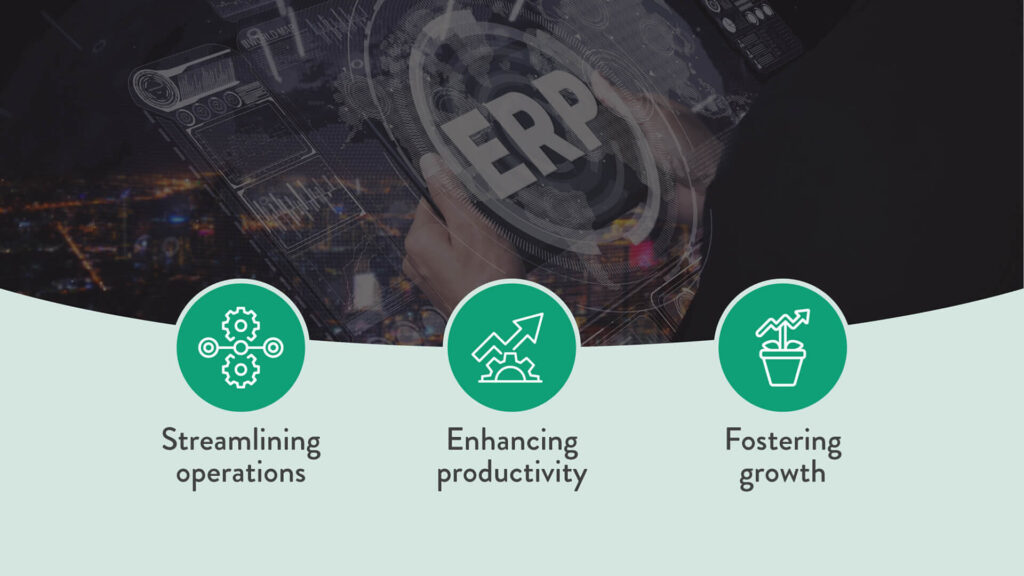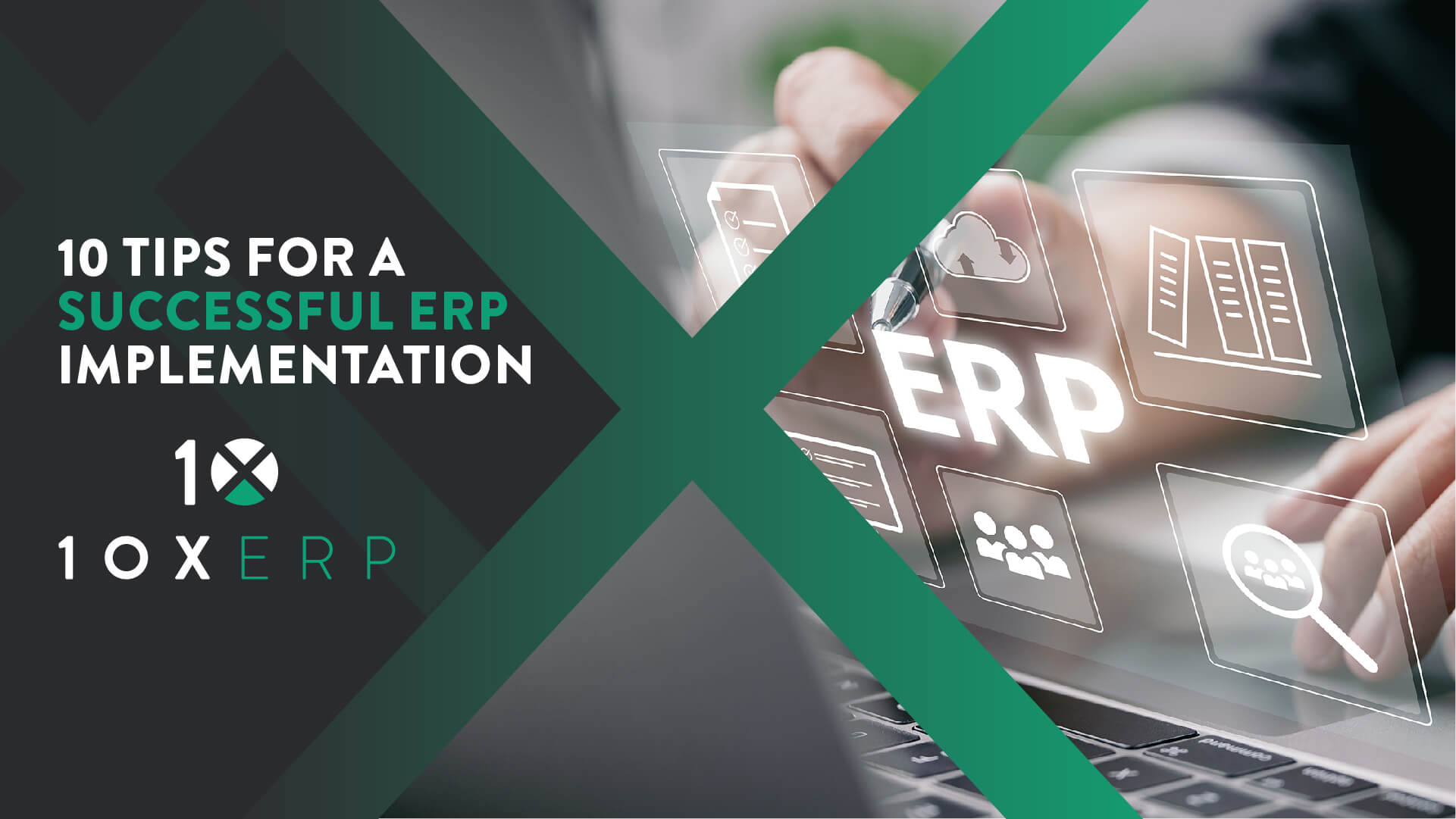Summary:
- ERP implementation demands clear objectives, exemplary system choice, and the involvement of key stakeholders to ensure alignment and acceptance.
- Prioritizing training, data integrity, cautious customization, and thorough testing ensures the system’s effectiveness and minimizes potential issues.
- Post-implementation support and regular reviews ensure the ERP remains relevant, focusing on continuous improvement and adaptation.
Enterprise Resource Planning (ERP) systems have become the backbone of modern businesses, streamlining operations, enhancing productivity, and fostering growth. However, implementing an ERP system is no small feat. It requires careful planning, a clear vision, and a commitment to change management. Here are ten essential tips to ensure your ERP implementation is a success:

- Clear Objectives and Vision: Defining what you want to achieve with the ERP system is crucial before diving into the implementation process. Whether improving inventory management, streamlining financial processes, or enhancing customer relationship management, having clear objectives will guide the entire project.
- Choose the Right ERP System: Not all ERP systems are created equal. Research various platforms, consider your business needs, and select a system that aligns with your company’s goals. Remember, the most expensive option isn’t always the best. It’s about finding the right fit.
- Involve Key Stakeholders: ERP implementation affects multiple departments. Involve key stakeholders from each department in the decision-making process. Their insights will ensure that the system meets the unique needs of each department and gains widespread acceptance.
- Invest in Training: An ERP system is only as good as the people using it. Invest time and resources in training your staff. Comprehensive training will reduce resistance to the new system, minimize errors, and ensure that you reap the full benefits of the ERP.
- Data Migration and Integrity: Migrating data from old systems to the new ERP is crucial. Ensuring that the data is clean, accurate, and consistent is essential. This might necessitate auditing and refining the existing data. Keep in mind that the quality of input directly affects the quality of output.

- Customization with Caution: While ERP systems can be customized to fit specific business processes, excessive customization can lead to complications. It can make the system cumbersome, increase costs, and complicate future upgrades. Customize only when necessary and always consider the long-term implications.
- Change Management: Resistance to change is natural. Communicate the new system’s benefits, involve employees, and address their concerns. A well-thought-out change management strategy will ensure a smoother transition and increase the chances of success.
- Test, Test, Test: Before going live, test the system thoroughly. Conduct pilot runs, involve end-users in the testing process, and address any issues. Testing will help identify potential problems and ensure the system is ready for full-scale deployment.
- Plan for Post-Implementation Support: Even after successful implementation, you’ll need ongoing support. Whether addressing unexpected issues, training new employees, or making minor tweaks, having a dedicated support team will ensure the system continues running smoothly.
- Review and Iterate: ERP implementation is not a one-time event. It’s an ongoing process. Review the system’s performance regularly, gather user feedback, and make necessary adjustments. This iterative approach will ensure that the ERP system meets your business needs and remains relevant in the ever-evolving business landscape.
Conclusion:

ERP implementation is a transformative process that can propel your business to new heights. However, it requires careful planning, dedication, and a commitment to continuous improvement. By following these ten tips, you can ensure that your ERP implementation is successful and delivers lasting value to your organization.
Remember, at 10X ERP, we’re always here to support your ERP journey. Whether you’re just starting out or looking to optimize your existing system, our team of experts is ready to assist. Contact us today at info@10xerp.com, and let’s make your ERP implementation successful!
